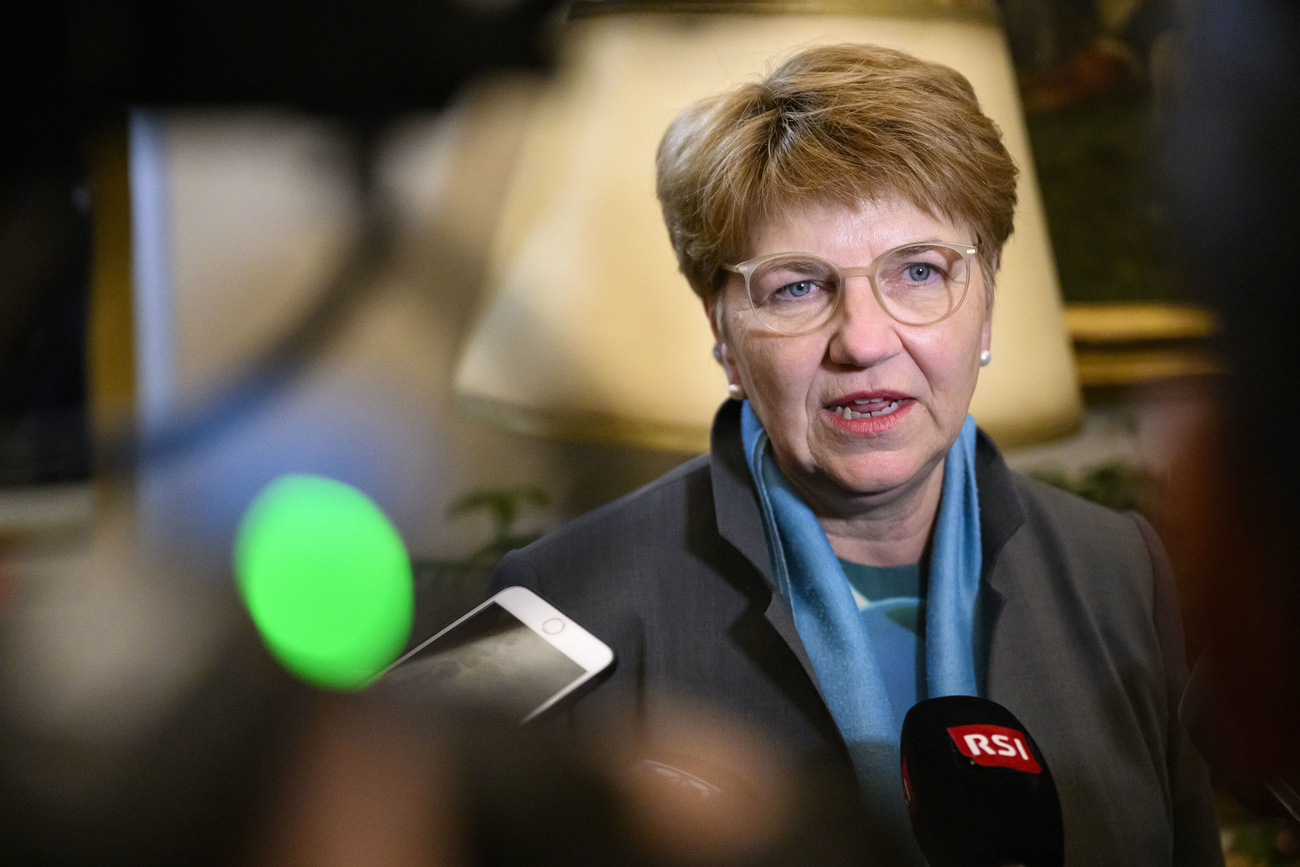
Ukraine peace conference could take place in 2024, says Swiss president

The peace summit for Ukraine planned by Switzerland should take place as soon as possible, says Swiss President Viola Amherd.
“It should certainly take place in 2024,” Amherd told the newspaper Schweiz am Wochenende in an interview published on Saturday.
Without the participation of Russia, the summit is unlikely to be a genuine peace meeting: “Russia will probably not be present, but we are looking for discussion with all the others,” she added.
+ Switzerland plans to organise Ukraine peace summit
At the same time, the president hinted that Switzerland is also in contact with Russia. “Switzerland talks to everyone,” she explained. “I’ve been told several times over the past few days how important this is and how happy everyone is that someone can talk to everyone. The channels of communication exist and they are open”.
For the moment, it is not known whether the summit at ministerial or head of state level will actually take place. “There is of course a small risk that we will not succeed in organising the summit,” Amherd conceded. But if Switzerland does not try, it certainly won’t happen. “You also have to have the courage to say sometimes, we’re going to try and do our best.”
Moderate expectations
However, Amherd is tempering expectations. “We cannot expect a ready-made peace plan at the end of our summit,” said the president, who is also defence minister. “But if we can launch a peace process, we will already have achieved a great deal.”
According to her, it would be a success if a wide range of countries took part, including those from the South – notably South Africa, India, Brazil and Saudi Arabia – and if possible China. Foreign Minister Ignazio Cassis will travel to China at the beginning of February, as has long been planned.
+ Ukraine and Switzerland urge countries to support peace plan in Davos
Almost two years after Russia invaded Ukraine, the future of the country was the focus of a meeting last Sunday in Davos between the government in Kyiv and representatives of over 80 countries and organisations. The security advisors from the various countries discussed a ten-point peace plan proposed by Ukraine.
This news story has been written and carefully fact-checked by an external editorial team. At SWI swissinfo.ch we select the most relevant news for an international audience and use automatic translation tools such as DeepL to translate it into English. Providing you with automatically translated news gives us the time to write more in-depth articles. You can find them here.
If you want to know more about how we work, have a look here, and if you have feedback on this news story please write to english@swissinfo.ch.

In compliance with the JTI standards
More: SWI swissinfo.ch certified by the Journalism Trust Initiative

























You can find an overview of ongoing debates with our journalists here . Please join us!
If you want to start a conversation about a topic raised in this article or want to report factual errors, email us at english@swissinfo.ch.